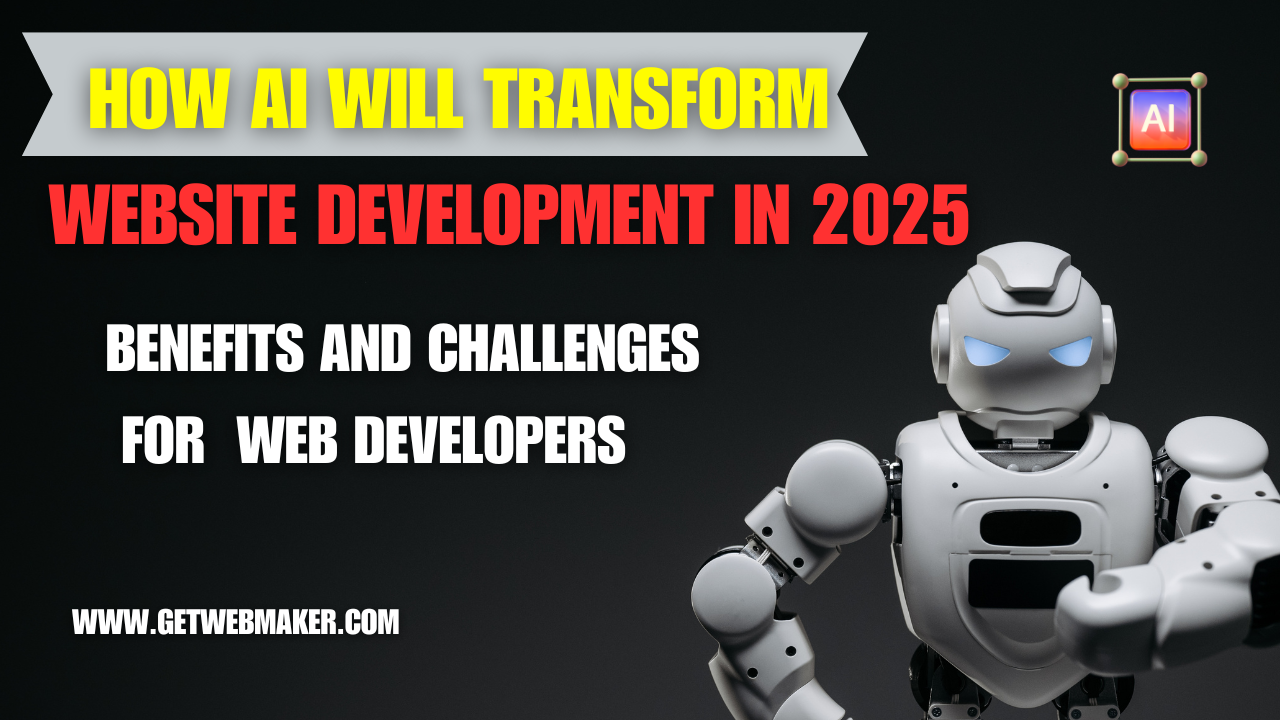How AI Will Transform Website Development in 2025

How AI Will Transform Website Development in 2025: Benefits and Challenges for Developers
Introduction to AI's Impact on Website Development in 2025
AI is expected to bring significant changes to the website development field by 2025. As AI continues to evolve, it will introduce new tools and techniques that can make website creation more efficient, personalized, and innovative. However, with these advancements, developers will need to adapt to the challenges posed by AI in the development process.
1. AI-Powered Website Builders
By 2025, AI-powered website builders will become more sophisticated, enabling developers to create websites faster and with less manual effort. These tools can automatically generate designs, layouts, and content, significantly reducing development time.
Benefits for Developers:
- Faster website creation and design automation.
- Reduced repetitive tasks and enhanced productivity.
Challenges for Developers:
- Potential job displacement for developers in tasks like design or layout creation.
- Need for continuous learning to understand and integrate AI tools effectively.
2. Personalization through AI
AI will revolutionize the way websites personalize content for users. By analyzing data such as browsing habits, preferences, and location, AI can deliver highly personalized user experiences, making websites more engaging.
Benefits for Developers:
- Increased user engagement and satisfaction.
- Ability to create dynamic, personalized experiences for visitors without manual effort.
Challenges for Developers:
- Ensuring AI personalization aligns with privacy regulations and data protection laws.
- Managing complex AI algorithms and integrating them into websites.
3. AI for SEO Optimization
SEO strategies will be enhanced by AI, allowing websites to automatically optimize content, improve search rankings, and target specific keywords effectively. AI-powered tools will help developers identify the best content strategies and optimize on-page elements.
Benefits for Developers:
- More efficient SEO implementation.
- Automatic keyword optimization and content recommendations.
Challenges for Developers:
- Staying up-to-date with AI-generated SEO practices and ensuring they align with Google's evolving algorithms.
- Managing content and SEO strategies effectively as AI becomes more integrated into the process.
4. Enhanced Security with AI
AI will play a crucial role in website security by detecting potential threats and vulnerabilities in real time. This will enable developers to build more secure websites and protect user data from cyberattacks.
Benefits for Developers:
- Enhanced website security through AI-driven threat detection and response.
- Automatic updates and protection against new security threats.
Challenges for Developers:
- Continuous monitoring and management of AI-based security systems.
- Balancing security with user experience to avoid over-reliance on AI security measures.
5. AI in Web Performance Optimization
AI will help optimize website performance by identifying and resolving issues such as slow loading times, inefficient code, and image optimization. Developers will have access to advanced AI tools that can analyze and suggest improvements for faster websites.
Benefits for Developers:
- Improved website performance with minimal manual intervention.
- Enhanced user experience through faster loading times.
Challenges for Developers:
- The need to understand and implement AI-driven optimization techniques.
- Managing the balance between AI recommendations and manual fine-tuning for the best results.
Conclusion
AI will undoubtedly transform website development by 2025, bringing both benefits and challenges for developers. While AI can automate repetitive tasks, optimize user experience, and improve security, developers will need to embrace new skills and stay updated with the latest AI tools and techniques. By adapting to these changes, developers can leverage AI to create more efficient, personalized, and secure websites.
